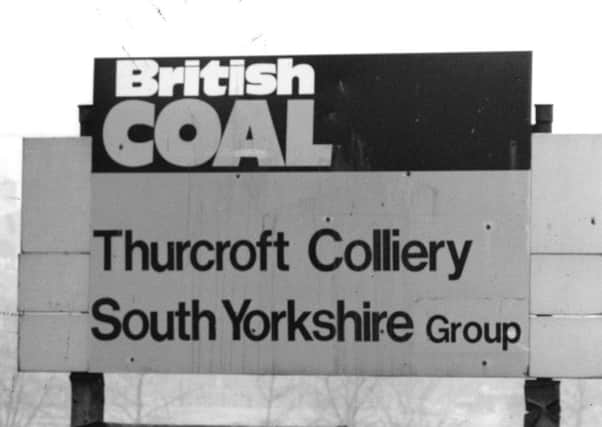Warning Over Doomed Mines: The Week That Was October 4 to 11, 1992.


It said British Coal would be rendered virtually unsaleable on privatisation unless the government reined in the growth of gas-fired power stations, because the market for coal would vanish.
The Coalfields Communities Campaign study said all 48 deep coal mines in the UK, employing around 50,000 people, were at serious risk.
Advertisement
Hide AdAdvertisement
Hide AdBeleaguered Prime Minister John Major prepared to address the Conservative Party Conference in Brighton, pledging to reassert his authority over a demoralised party.
Prior to September’s sterling crisis and the renewed rift within the Tories over Europe, the conference would probably have seen the party united in celebration of its fourth consecutive general election victory.
However, the true scale of the task now before Mr Major was underlined by two damning opinion polls suggesting his popularity had hit an all-time low.
Meanwhile, the Labour Party planned to change the design of ballot papers for its ruling body, possibly by incorporating a watermark, following a failed attempt by Yorkshire extremists to rig the previous month’s elections.
Advertisement
Hide AdAdvertisement
Hide AdThe plot to photocopy extra ballot papers for the National Executive Committee elections, carried out by hard-left party members, was aimed at ousting Sheffield Brightside MP and health spokesman David Blunkett.
The attempt was thought to have been triggered by Mr Blunkett’s support for the decision the previous year to expel former Coventry South-East MP Dave Nellist after he refused to disown the Militant Tendency.
Party workers in Sheffield believed Mr Blunkett, who had been on the NEC since 1983, was being specifically targeted by members of the hardline Socialist Organiser group.
Around 15 known extremists were thought to have transferred to his constituency, and it was discovered that a number of extra ballot papers in the constituency had been duplicated in an attempt to unseat the MP from the executive body.
Advertisement
Hide AdAdvertisement
Hide AdTeachers united in a campaign against the introduction of performance-related pay this week. Two unions, the NUT and NASUWT – representing almost three-quarters of teachers throughout England and Wales – said they were ready to boycott “crude and unfair” merit money pilot schemes which were expected to be recommended by the independent School Teachers’ Pay Review Body.
Elsewhere, hundreds were feared dead or injured when an Israeli Boeing 747 cargo plane crashed on the outskirts of Amsterdam, setting two blocks of flats on fire.
The El Al Jumbo Jet, which had stopped en route from New York to Tel Aviv, came down shortly after take-off, spilling burning fuel over a wide area of the suburb of Bijlmermeer, to the south of the city.
Officials said 50 flats in the nine-storey blocks were hit directly by the falling plane. In all, 47 people died on the plane and on the ground. The crash was the Netherlands’ worst air disaster and the first crash in El Al’s 44-year history.
Advertisement
Hide AdAdvertisement
Hide AdThe pilot had sent an emergency distress signal 10 minutes after take-off and reported that two of the plane’s engines had failed. The four crew died on impact.
The crash investigation pinpointed metal fatigue as the cause of engine failure, but six years later it was revealed that the plane had been carrying at least one of the ingredients of the nerve gas sarin. There were allegations of a cover-up.